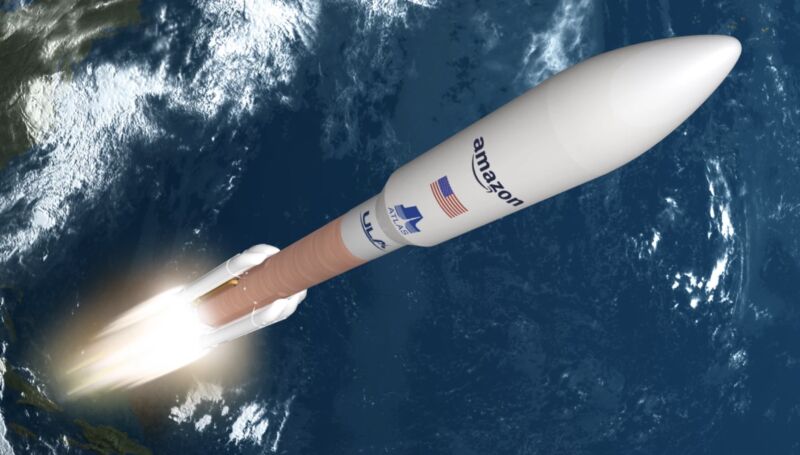
Facebook has sold its small-satellite Internet division to Amazon and said it has no plans to become an Internet service provider. Amazon and Facebook both confirmed the sale to Ars today.
The Information first reported that "Amazon has acquired a team of more than a dozen wireless Internet experts from Facebook in an effort to boost its multibillion-dollar effort to launch thousands of satellites... The workers are in the Los Angeles area and included physicists as well as optical, prototyping, mechanical, and software engineers who had previously worked on aeronautical systems and wireless networks, according to their LinkedIn pages." One of those is Jin Bains, who is now a director at Amazon's Project Kuiper. The employees reportedly moved to Amazon in April.
Facebook asked the FCC for permission to launch a low-Earth-orbit satellite in 2018, but the company called it a small research and development experiment and did not publicly commit to offering Internet service. Today, Facebook said that "it has not been our plan to launch a constellation of satellites, become an ISP, mobile operator, or tech vendor. We've long held the belief that satellite technology will enable the next generation of broadband infrastructure, and as part of our ongoing connectivity efforts, this team was focused on designing and testing new ways to advance satellite connectivity using optical communications and radio frequency systems and solutions. We are really proud of the work this team has accomplished and are excited to see what they will continue to build [at Amazon]."
Amazon to launch satellites in 2023 or later
Amazon plans a constellation of low-Earth-orbit satellites to compete against SpaceX's Starlink service, but Amazon's "Project Kuiper" is far behind the SpaceX venture. Amazon confirmed to Ars that it "did acquire a small number of employees from the Facebook Connectivity team and that the team moved over to Amazon earlier this year to work on Project Kuiper." Amazon declined to say more about what the employees will work on within Kuiper.
SpaceX is already providing service to over 10,000 beta users with over 1,500 satellites, and the company says it will have near-global coverage in August. Amazon has US approval to launch 3,236 low-Earth-orbit satellites and says it plans to invest more than $10 billion in the project. But the company hasn't said exactly when it will launch satellites or offer service. Amazon has said it has over 500 employees working on the Kuiper project, and its website lists over 200 open jobs in the division.
Amazon told Ars last month that 2023 is the earliest it expects to launch satellites. FCC rules give Amazon six years to launch and operate 50 percent of its licensed satellites, which means that the company needs to launch 1,618 satellites by July 30, 2026. Amazon would have to launch the rest of the licensed satellites by July 30, 2029. Amazon told the FCC it plans to offer broadband to customers after it launches the first 578 satellites.
Having sold off its satellite team, Facebook today said it will keep "working with our satellite operator partners to expand connectivity through Wi-Fi" and noted its partnership with Eutelsat on a project in sub-Saharan Africa. Facebook said it is involved in other collaborations such as the Telecom Infra Project and that "we believe these infrastructure investments will have a positive impact for the satellite industry, particularly as they work to expand connectivity to rural, hard-to-reach-areas."
reader comments
117